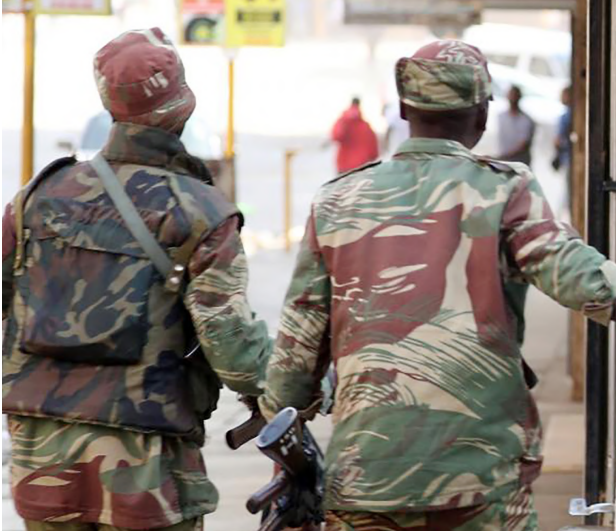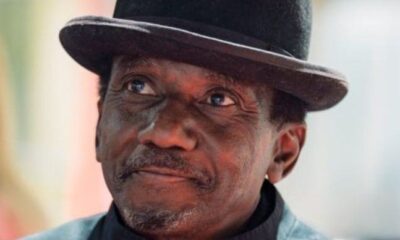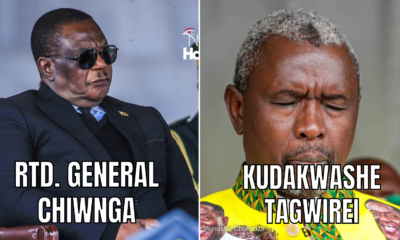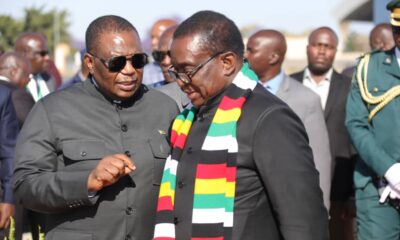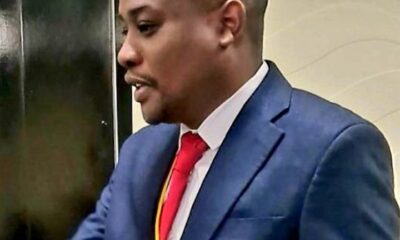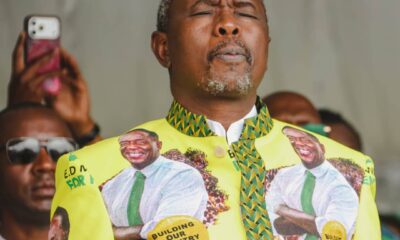BRENNA MATENDERE
AS President Emmerson Mnangagwa battles to extend his term of office beyond his 2028 second term constitutional limit – despite his feeble and ironic public denials claiming to be constitutionalist the stumbling block is the military, the traditional political power broker in Zimbabwean politics.
While his supporters push for him to stay on, Mnangagwa publicly says he will retire when his current term expires in 2028.
Military sources have told The NewsHawks that Mnangagwa will be blocked from any constitutional changes to extend his stay in office which his party, Zanu PF, is currently demanding.
Zanu PF provincial structures are currently demanding amendment of the national constitution for Mnangagwa to stav on until 2030.
Zanu PF Harare provincial chairperson Godwills Masimirembwa two weeks ago said Mnangagwa should lead the country beyond 2028.
The most critical issue is that the constitu- tion of Zimbabwe must be amended to enable him to continue to lead beyond 2028,” Masimirembwa told the state-run daily The Herald.
The Zanu PF women’s league has also re- solved that Mnangagwa should remain in office beyond 2028.
Several provinces, including Masvingo and Midlands, have also called for the same that the constitution be amended for Mnangagwa to remain in office until 2030.
However, sources say the army will strongly leverage its institutional and hard power to stop that succession process. Mnangagwa locked in an internecine internal power struggle with Vice-President Constantino Chiwenga, who helped his ascendancy through coup in 2017- to control the levers of state stewardship and resources.
A military source told The NewsHawks:
“The army is clear on this issue. Very very clear. The President has to serve his constitutional second term and retire in 2028. Let’s not forget that he was not supposed to run for a second term in the first place from the military perspective. Although publicly he seems to be in agreement that he will retire in 2028, in political circles he is speaking a different language and giving different signals, clandestinely encouraging his core supporters to push for constitutional amendment for him to stay on until 2030. That has no takers in the security forces beyond a few individuals who agree with that for self-interest. Even among the public, it is not a popular proposal.”
Sources have repeatedly insisted Mnangagwa will be blocked by the military even when he seemed to have seized the political initiative and to be on the ascendancy amid power consolidation and retention bid,.
A recent report by local think-tank, Zimbabwe Democracy Institute, says:
“It is abundantly clear that the military has played a decisive role in Zimbabwean politics. As Zanu PF continues to grapple with a colossal succession battle, the role of the military in intra-party politics will become apparent in the decisive phase, although at this moment that role has not been shown overtly.
“Due to the politico-military nexus, the military will not be an innocent bystander in the processes to select a new leader Zanu PF and ultimately of the Republic.
“It is highly likely that, as the military has done before, it will exercise veto power in the election or selection of the Zanu PF leader- ship. According to the military, the office of the head of state is a straitjacket whose incumbent must meet certain attributes particularly pos- sessing military credentials.
“The same credentials can be said also apply to the office of Zanu PF first secretary. Thus, the successor to President Mnangagwa is likely to be a military man, not a civilian politician. Whether it will be Vice-President Chiwenga or not is subject of further inquiry, but the likelihood of a military man or military-backed candidate is inevitable and inescapable.
“As the succession debate continues to unravel amid indications that there is no homogeneity among Zanu PF civilians, with the party divided between factions, this presents potentially hazardous scenario.
“Rigorous research is required to understand the nature of elite contradictions within the military and their machinations regarding Mnangagwa’s successor, as well as whether the military supports attempts to prolong Mnangagwa’s presidency to 2030.
“Throughout Zimbabwe’s history, the military has played a pivotal role in both the establishment and maintenance of political authority.
“Due to the relations, which necessitate the pervasive presence of the military in civilian political processes, Zimbabwe experiences military dominated civil military relations. Despite 44 years of independence and civilian control, the military has remained the ultimate foundation for and arbiter of power in Zimbabwe.
“It is highly likely that the military will be the arbiter among the warring factions, as it was during the coup against Mugabe in November 2017.
“As political authority in Zimbabwe is highly personalised and militarised, anyone who succeeds Mnangagwa will have to rely on the strength of their links to the military.
“This is especially true in a party like Zanu PF, where there an absence of an institutionalised structure of leadership succession, further intensifying factional fights. Therefore, the military’s influence in Zimbabwean politics is both profound and enduring.
The future of Zanu PF and the Republic will likely continue to be shaped by the military’s involvement, necessitating a nuanced understanding of civil-military relations and the unique historical and political contexts of Zimbabwe.
The path to democratic governance in Zimbabwe will require addressing these complex dynamics and ensuring that civilian authority is upheld in accordance with constitutional principles.
